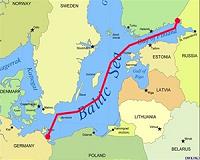 |
Baghdad (UPI) Apr 9, 2010 As Iraq's political barons scramble for power in the messy aftermath of March elections, the country's future stability may well depend on what happens in the disputed northern city of Kirkuk and its oilfields, which hold 40 percent of Iraq's reserves. Iraq's Kurds, who comprise about 20 percent of the 22 million population, claim Kirkuk and its environs are part of their ancestral homeland. They want it folded into their semi-autonomous enclave covering three northern provinces along the borders with Syria, Turkey and Iran. With its oil fields, and twin export pipelines to Turkey's Ceyhan terminal on the Mediterranean coast, it would provide the economic bedrock for an eventual Kurdish state. The central government is Baghdad refuses to relinquish the oil fields or enhance the prospect of a breakaway Kurdish homeland that would seriously jeopardize the federal Iraqi state. In the regional context, Syria, Iran and Turkey, all with restive Kurdish minorities, also do not want to see an independent, oil-rich Kurdish state emerge for fear it would galvanize those minorities. Iran and Turkey are already fighting Kurdish separatists. Saddam Hussein sought to cement his grip on Kirkuk by decimating the Kurds and by Arabizing the city of some 150,000 -- kicking out Kurds who had lived there for generations and replacing them with Arab families. Since Saddam was deposed in April 2003, the Kurds have redoubled their efforts to regain control of the city and its environs by driving out the Arabs and bringing back their own people. Under the 2005 Iraqi postwar Constitution, a referendum to decide the city's future was to have been held, but has never taken place because of the likelihood it would trigger widespread violence, and possibly even a new civil war. The dead-heat parliamentary elections, with Prime Minister Nouri al-Maliki's Shiite-dominated State of Law coalition and former premier Iyad Allawi's secular Iraqiya alliance more or less even as the leading vote winners, looks set to make the dispute over Kirkuk even sharper. The Kurdish parties -- the Kurdistan Democratic Party and the Patriotic Union of Kurdistan, which is led by Iraqi President Jalal Talabani -- hold high cards that could decide which alliance gets to form a new coalition government. In any broad analysis, the Kirkuk oil fields are critical to Iraq's future, while the Kurds view them as indispensable to their aspirations for statehood. Baghdad's drive to more than quadruple Iraq's oil production over the next six years to 10 million-12 million barrels per day is essential to pay for the country's reconstruction. Losing Kirkuk would impede that objective considerably, but not necessarily cripple it. But the dispute could attract Iraq's neighbors who have their own agendas. Stirring trouble in Kirkuk could suit Iran, which does not want to see a strong Iraq emerge from the U.S. invasion of March 2003, and thus may seek to make trouble if the secular coalition led by Allawi, a longtime asset of the Central Intelligence Agency and no friend of Tehran, gets to form a government. The Saudi and other Sunnis states, who back Allawi and his Sunni allies, do not want to see Maliki and his Tehran-leaning allies returned to power, and they could whip up trouble for him if he is. Further, Iran, Saudi Arabia and other members of the Organization of Petroleum Exporting Countries do not want to see Iraq push up its production to a level that would rival Saudi Arabia's. That would push oil prices down and cost these states plenty. Nor do they want to see Iraq develop its untapped reserves, widely held within the energy industry to be as much again as the 115 billion barrels it is known to be sitting on. The Kurdish parties are already sparring with Baghdad over modest oil reserves found within their northern enclave. Baghdad wants all oil production centralized through the federal government. But in the absence of a much-delayed Oil Law, the Kurdish Regional Government has signed separate contracts with foreign wildcatters and wants the revenue from those fields. Allawi did well in Kurdish territory during the elections. So if he gets to form the next government, Kurdish demands for control of Kirkuk will intensify. But it's unlikely that he'll be able to make any significant concessions there without antagonizing other groups whose support he needs.
Share This Article With Planet Earth
Related Links Powering The World in the 21st Century at Energy-Daily.com
 Nord Stream construction launched
Nord Stream construction launched Portovaya Bay, Russia (UPI) Apr 9, 2010 Construction of the controversial Nord Stream pipeline linking Russia and Germany under the Baltic Sea has officially started. Portovaya Bay in Russia has surely never seen so many VIPs. Russian President Dmitry Medvedev, Dutch Prime Minister Jan Peter Balkenende, the European Union's Energy Commissioner Guenther Oettinger and former German Chancellor Gerhard Schroeder all traveled to t ... read more |
|
| The content herein, unless otherwise known to be public domain, are Copyright 1995-2010 - SpaceDaily. AFP and UPI Wire Stories are copyright Agence France-Presse and United Press International. ESA Portal Reports are copyright European Space Agency. All NASA sourced material is public domain. Additional copyrights may apply in whole or part to other bona fide parties. Advertising does not imply endorsement,agreement or approval of any opinions, statements or information provided by SpaceDaily on any Web page published or hosted by SpaceDaily. Privacy Statement |